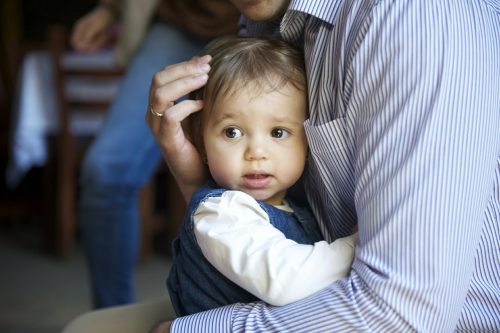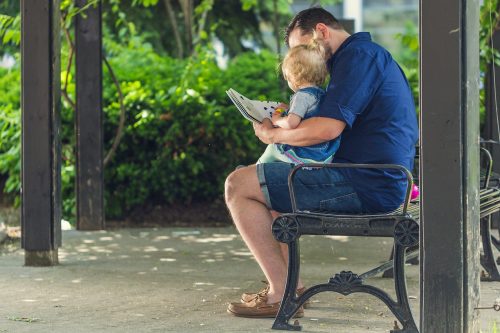
Source: pixabay.com
When we were kids, we all remember one common thing when we scrape our knees, feel a fever coming, or come across a bully at school: we all go to our mothers. Regardless of our gender, we automatically look for our mothers in situations wherein we need comfort.
It is the way it is because, admittedly, we do not expect fathers to be the emotional one in the family. We usually assume that trait from our mothers while the disciplinarian role is taken on by fathers. For a lot of families, this setup has worked with no problem. After all, we are pre-dispositioned to think and feel that way. But maybe it is also time to finally re-think that.
How Gender Roles Affect Parenting
Men and women communicate and feel things quite differently because of how we were brought up as children. Women are more expressive while men, on the other hand, prefer to keep things passive and brunt.

Source: pixabay.com
Gender arrangements have made it hard for men to adopt the same emotional connection of women because it was severely perceived to be associated with “womanly” things. Even down to family units, this thought had been carried on.
“It is often viewed that it is not okay for boys and men to express or discuss their emotions,” wrote Erlanger A. Turner, PhD.
It is not necessarily a bad thing; it does, however, pose a few issues when it comes to the relationship dynamics with kids. Mainly, kids find themselves too afraid to open up to their dads, and dads feel disconnected from the lives of their kids in return. Even when they do want to be more emotional, they find it hard since they value being a disciplinarian more.
“One-on-one time is the foundation of social-emotional development. In a family we all have roles, but one-on-one we get to be who we are,” says John C. Panepinto, PsyD, LPCS, NCC.
Impact Of Nurturing Fathers
On the contrary, nurturing fathers might be more needed. It helps the family in a variety of ways.
One, it makes children more comfortable with their parents. At an early age, boys are taught to handle emotions wisely, while young girls find security in interacting and confiding in men.
Two, it helps dads to be more engaged with fatherhood. Getting in touch with their emotional side allows them to build a connection with their kids on a deeper level. Additionally, they also tap personal feelings they have never processed before. “They are personally engaged in their children’s lives, interests, dreams and aspirations on a daily basis,” says Athena Staik, PhD.
Third, being more nurturing towards their kids and families fosters a healthy environment where couples can grow in maturity alongside their kids.
However, in truth, it is easier said than done. When you are so used to being uptight and passive with your kids, it is hard to transition into the other side. Nevertheless, in the pursuit to be more nurturing, fathers must first understand and make sense of their own emotions. With that personal understanding, they can slowly start to project this same understanding to their kids. Just like with other things, cultivating this new relationship with kids requires enough time with them—and the right kind of quality time for that matter.

Source: pixabay.com
Fatherhood is a journey of constant learning, and keeping this in mind, we can start raising kids who are more emotionally healthy and happy. Cheers to fathers everywhere!
